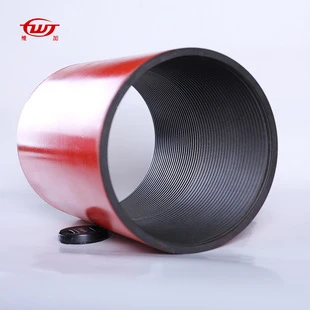- Afrikaans
- Albanian
- Amharic
- Arabic
- Armenian
- Azerbaijani
- Basque
- Belarusian
- Bengali
- Bosnian
- Bulgarian
- Catalan
- Cebuano
- Corsican
- Croatian
- Czech
- Danish
- Dutch
- English
- Esperanto
- Estonian
- Finnish
- French
- Frisian
- Galician
- Georgian
- German
- Greek
- Gujarati
- Haitian Creole
- hausa
- hawaiian
- Hebrew
- Hindi
- Miao
- Hungarian
- Icelandic
- igbo
- Indonesian
- irish
- Italian
- Japanese
- Javanese
- Kannada
- kazakh
- Khmer
- Rwandese
- Korean
- Kurdish
- Kyrgyz
- Lao
- Latin
- Latvian
- Lithuanian
- Luxembourgish
- Macedonian
- Malgashi
- Malay
- Malayalam
- Maltese
- Maori
- Marathi
- Mongolian
- Myanmar
- Nepali
- Norwegian
- Norwegian
- Occitan
- Pashto
- Persian
- Polish
- Portuguese
- Punjabi
- Romanian
- Russian
- Samoan
- Scottish Gaelic
- Serbian
- Sesotho
- Shona
- Sindhi
- Sinhala
- Slovak
- Slovenian
- Somali
- Spanish
- Sundanese
- Swahili
- Swedish
- Tagalog
- Tajik
- Tamil
- Tatar
- Telugu
- Thai
- Turkish
- Turkmen
- Ukrainian
- Urdu
- Uighur
- Uzbek
- Vietnamese
- Welsh
- Bantu
- Yiddish
- Yoruba
- Zulu
Understanding Casing Collars and Their Importance in Oil and Gas Operations
The Importance of Casing Collars in Oil and Gas Drilling
In the oil and gas industry, the drilling process is a complex operation requiring precision and the use of specialized equipment. One critical component in this process is the casing collar, a vital element that contributes to the integrity and safety of a well. Understanding the significance of casing collars, their functions, and the advancements in technologies associated with them is essential for professionals involved in drilling operations.
Casing collars are typically metal rings or components made from durable materials capable of withstanding the harsh conditions found in subterranean environments. They are installed at specific intervals along the borehole casing, which supports the walls of the well and protects it from collapse. Casing collars serve several key purposes they provide structural support, help facilitate the installation and retrieval of casing, aid in the proper alignment of pipes, and play a crucial role in preventing fluid migration between different geological layers.
One of the primary functions of casing collars is to enhance the strength of the casing string. Each section of casing is joined together by connections, and casing collars reinforce these joints, ensuring they can endure the pressures and stresses encountered during drilling and production activities. This added strength is imperative to maintain the integrity of the wellbore and prevent potential leaks or failures that could have catastrophic consequences.
Additionally, casing collars contribute to the effective management of wellbore pressures. During drilling, fluids are circulated through the well to cool the drill bit, remove cuttings, and maintain pressure. Casing collars are strategically positioned to allow for fluid passage while also providing points for pressure monitoring and control. This allows drill operators to make informed decisions based on real-time data, ultimately promoting safer and more efficient drilling operations.
casing collar

Furthermore, as drilling technologies evolve, so do the designs and applications of casing collars. Innovative materials and manufacturing processes have allowed for the production of casing collars that are lighter yet stronger, making them easier to handle and install. Advanced designs also incorporate features such as imbedded sensors that monitor downhole conditions. These smart casing collars can provide critical data regarding temperature, pressure, and fluid characteristics, which can be transmitted to surface systems in real-time.
Another aspect of casing collars is the ability to provide identification and segmentation within the casing system. Each collar can be marked or stamped with unique identifiers, allowing engineers and operators to track specific sections of the well. This is especially important in extended reach drilling or in wells where multiple casing strings are utilized. Accurate identification helps in planning maintenance or interventions and ensures that operations are conducted smoothly and safely.
In terms of installation, casing collars must be carefully integrated into the drilling process. Their placement is determined by geological assessments and drilling objectives. Proper installation techniques are crucial to ensure that casing collars function as intended. If improperly installed, they may not provide the necessary support, leading to potential failures or costly repairs. Therefore, personnel involved in drilling operations must be well-trained and familiar with the best practices regarding the installation and use of casing collars.
In conclusion, casing collars play an indispensable role in the oil and gas drilling process. They offer structural support, pressure management, and critical data collection, all of which are essential for safe and efficient operations. As the industry continues to adopt new technologies and methodologies, the design and application of casing collars will likely advance, further enhancing their functionality. Understanding the importance of casing collars not only benefits drilling professionals but also contributes to the overall safety and sustainability of oil and gas exploration and production efforts. With proper attention to their design, installation, and maintenance, casing collars can significantly enhance the efficiency and integrity of well operations in this vital industry.
-
Tubing Pup Joints: Essential Components for Oil and Gas OperationsNewsJul.10,2025
-
Pup Joints: Essential Components for Reliable Drilling OperationsNewsJul.10,2025
-
Pipe Couplings: Connecting Your World EfficientlyNewsJul.10,2025
-
Mastering Oilfield Operations with Quality Tubing and CasingNewsJul.10,2025
-
High-Quality Casing Couplings for Every NeedNewsJul.10,2025
-
Boost Your Drilling Efficiency with Premium Crossover Tools & Seating NipplesNewsJul.10,2025







